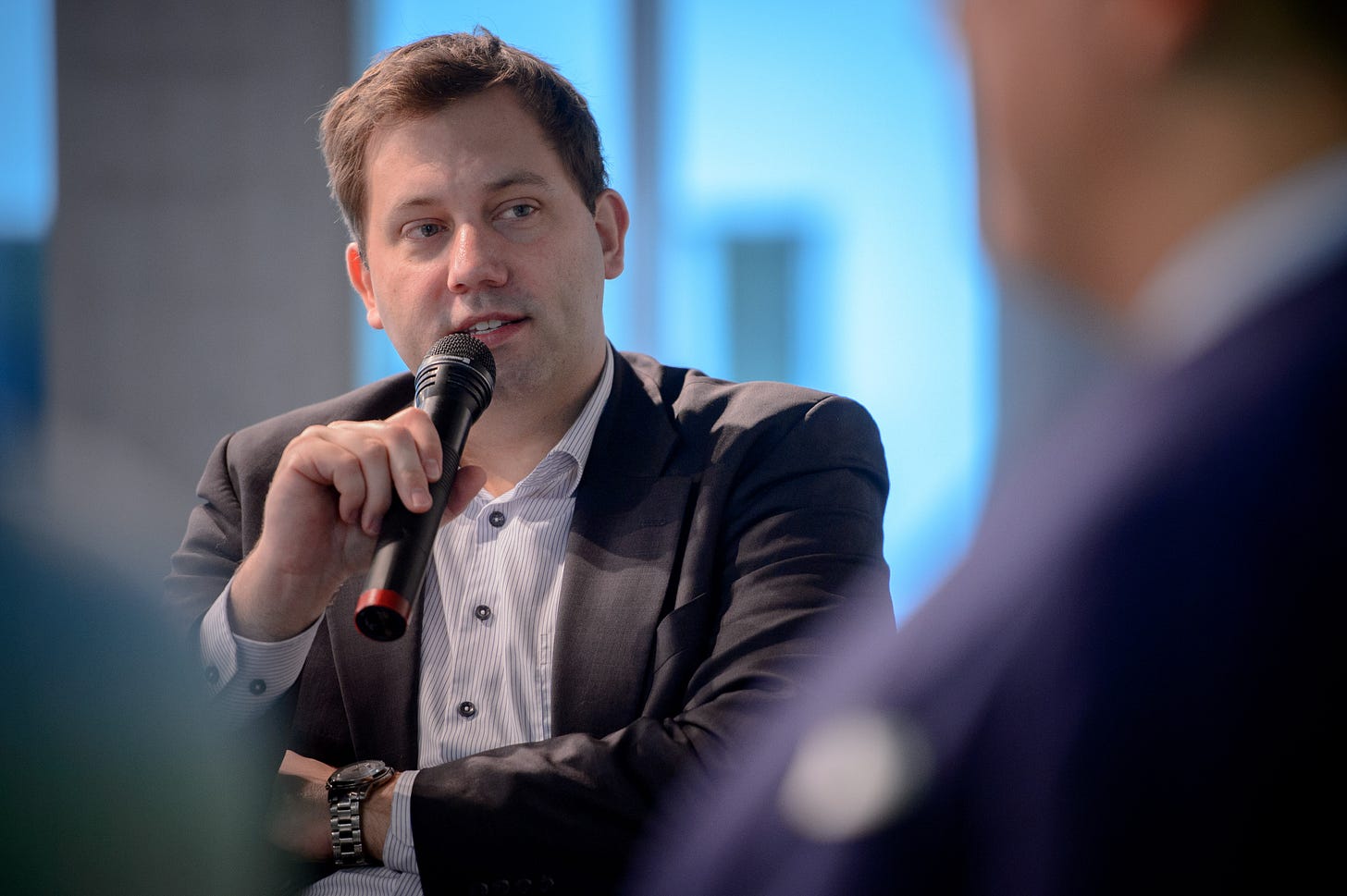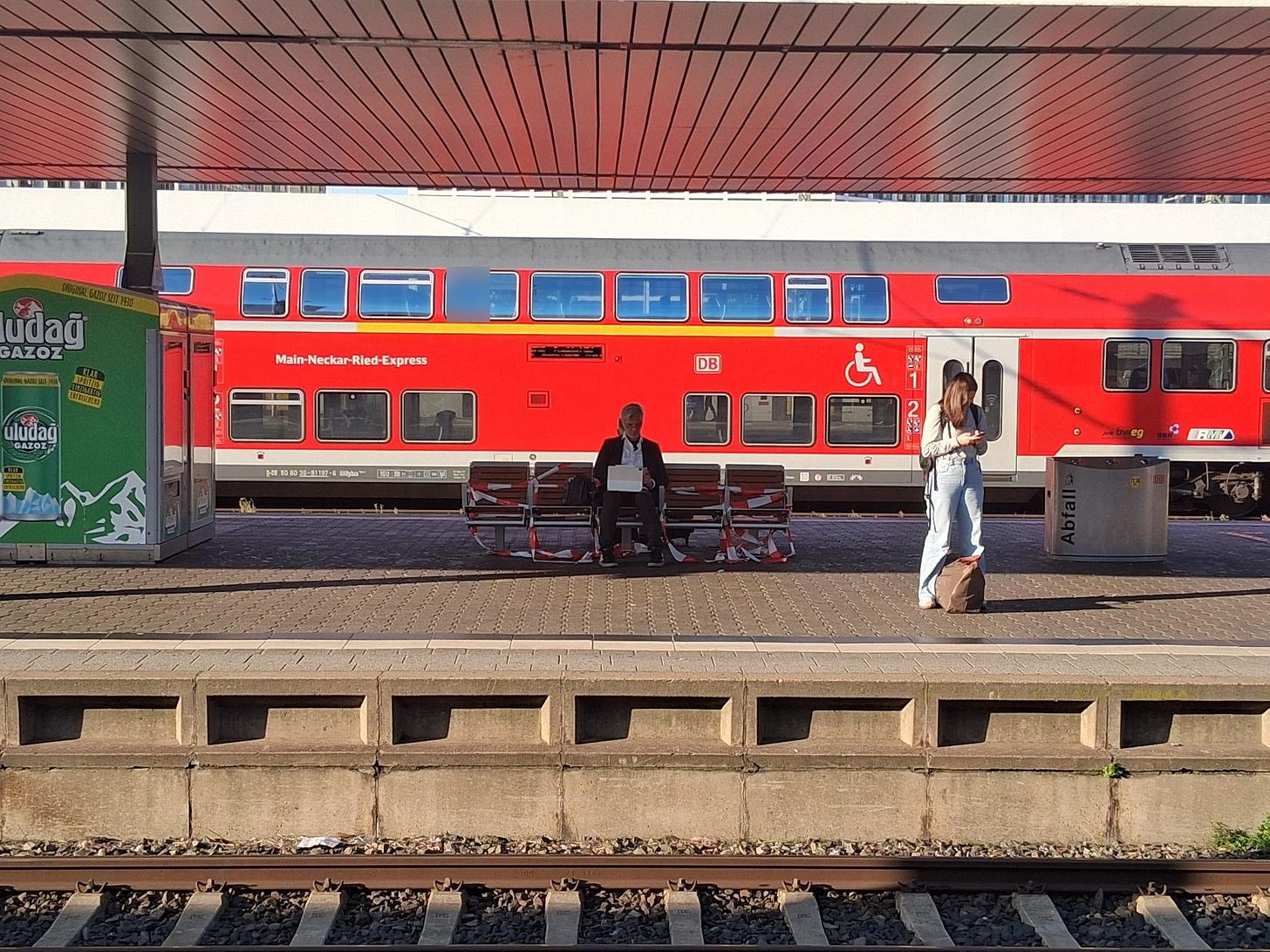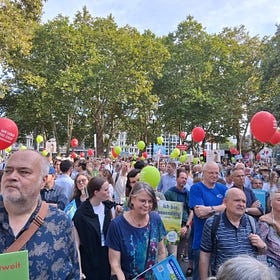Are the SPD about to take the axe to the welfare state?

Last November, a Social Democrat-led government collapsed after then-Chancellor Olaf Scholz (SPD) repeatedly butted heads with his finance minister, Christian Lindner (FDP), about the need to cut back federal spending.
Scholz refused to countenance welfare cuts at a time when Germany was increasing military spending. Doing so would “give fuel to populists and extremists”, he insisted. And besides, he said, there was another solution. Germany has the lowest debt in the G7 and when Scholz met his colleagues from this elite club, they couldn’t believe that Germany wasn’t borrowing more, he claimed.
Budget crises caused by excessive government debts were lurking on the horizon in two G7 neighbours - France and the UK - but Scholz didn’t (want to) see them coming.
Now in control of the Finance Ministry, it is the SPD who find themselves in the role of Ebenezer Scrooge as they admit that, actually, even after the government decided to take on a trillion euros in new debt, there still isn’t enough money in the budget to pay for the welfare state.
And the exploding costs of the pension system are just part of the problem here. A large part of the reason the government’s hands are so tied is the fact that, starting in 2020, Berlin’s response to every single crisis has been to try to spend its way out of trouble. In a three-year period from the start of 2020 to the end of 2022 alone, the size of federal debt shot up from 1.3 trillion to 2.1 trillion.
This week, at the start of a debate on the federal budget for 2026, Finance Minister Lars Klingbeil (SPD) admitted that the time has now come to start paying these enormous sums of money back.
“The money, that we all needed and from which we all benefited as a society, will have to be paid back at some point,” he said. “For a long time, ‘at some point’ was a very distant concept. But it is now beginning.”
Klingbeil, who as well as being Finance Minister is also co-leader of the Social Democrats and vice-Chancellor, confirmed that by 2027 paying back the money that the state borrowed during Covid and the Russian energy crisis is going to leave a €30 billion hole in the federal budget.
An analysis by the Dezernat Zukunft economic institute concludes that things are only going to get worse. While Klingbeil currently has to spend every fifteenth euro from his budget on debt repayments, by 2035 that ratio will have risen to one in five.
The answer, Klingbeil admitted in his speech to the Bundestag, is spending cuts. These cuts, which he said will be brought in over the coming months, will be “arduous and challenging” but also necessary if Germany is to “maintain its economic strength.”
In a warning to those in his own party who have signalled a reluctance to support welfare reforms, Klingbeil said that “anyone who thinks we can just carry on as before is mistaken… There must be change, and it must not be small steps, but major changes.”
“The status quo is our enemy,” he stated emphatically.
Klingbeil’s statement will be music to the ears of chancellor Friedrich Merz, who in August urged his junior coalition partner to “start thinking in an industry friendly way if you want to have a chance in this coalition.” The same Merz speech caused headlines for his claim that “we simply can’t afford our welfare state anymore.”
Merz’ problem is that Klingbeil is just one head of a tandem that runs the SPD. His co-leader Bärbel Bas has flatly rejected Merz’s claim that the welfare state is unaffordable as “bullshit”. In her role as Labour Minister, Bas is the key figure responsible for bringing in labour market reforms: her ministry, which pays out dole cheques and pension subsidies, currently swallows up around a third of the entire federal budget.
But Bas, the daughter of a bus driver from the working class city of Duisburg, is clearly uncomfortable with talk of cutting spending. When asked how to solve Germany’s budget issues, she insists that the remedy lies in simplifying bureaucracy and waiting for the economy to start growing again.
Unfortunately for Merz, Bas is clearly the more popular member of the duo at the top of the SPD. When the two stood for election at the party conference in May, Klingbeil won just 65 percent of the vote among delegates, while Bas secured 95 percent.
Whether the SPD end up committing to reforms will have a lot to do with whether they have come to terms with their own history.
The last time Germany was in similar trouble, two decades ago, the SPD under Gerhard Schröder enacted the so-called Hartz reforms, making it easier for companies to employ people on short-term contracts and slashing the social security net.
The result was a steady drop in unemployment and a decade of strong economic growth. But the reforms were also followed by a slump in the SPD’s popularity, with many on the left of the party seeing them as a betrayal of the working classes.
Klingbeil, who cut his political teeth as an advisor to Schröder, recently cited the Hartz reforms as a model for what the country needs to do now. Even a year ago, such talk would have been sacrilege inside the SPD. But, since Scholz’ government collapsed, public attitudes have shifted significantly.
It is hardly surprising that tabloid Bild reacted to Klingbeil’s speech by saying that “finally someone is speaking the truth.” But the fact that the left-wing Süddeutsche Zeitung also argued that “the SPD’s only chance is to take on the welfare state” is a sign that the times are truly changing.
Last week’s poll result: Do the SPD still understand working class concerns?
Yes - 11%
No - 89%
Germany in a picture
News in brief
📺 Public broadcaster ARD has found itself in the eye of culture war storm after it sacked a prominent right-wing journalist, apparently after more liberally minded colleagues conspired to push her out. Julia Ruhs, 31, had been hired to open the broadcaster to more right-wing voters. But her choice of focusing on the link between migration and crime in her first episode caused outrage among some colleagues, who accused her of pandering to far-right narratives. In ARD’s complicated regional set up, Norddeutsche Rundfunk (NDR) decided to drop Ruhs, while Bayerische Rundfunk (BR) kept her on. Conservative commentators have lamented a case of “cancel culture” with some even comparing it to ABC’s decision to axe Trump critic Jimmy Kimmel in the US. The incident comes on the heels of public broadcast journalists describing assassinated US conservative Charlie Kirk as an “extremist”, an editorial choice which critics say reveals the broadcasters’ left-wing bias. Those editorial decisions have reignited discussion of abolishing the compulsory licence fee.
🗳️ A local election that is being seen as a test balloon for what would happen if the AfD were outright banned from taking part in elections ended with a turnout of less than 30 percent. Joachim Paul, the AfD candidate for the mayoral seat in the city of Ludwigshafen, was banned from running after the state intelligence agency in Rhineland-Palatinate questioned his loyalty to the constitution. The turnout represented a massive drop from the last mayoral election, when 60 percent of the city’s residents turned out. Furthermore, one in ten ballots were void, a level that is likely to do with voters writing Paul’s name onto their ballot paper. Read more on state surveillance of the AfD.
🚄 Germany’s high-speed trains aren’t going to be getting any more punctual any time soon. Transport Minister Patrick Schnieder has set a target for 70 percent of all ICE trains to arrive on time by the end of this decade. Deutsche Bahn, which previously set its own targets, wanted to ensure that 75 percent of high-speed trains arrive on time next year, up from 65 percent at the moment. But Schnieder dismissed the state rail company’s targets as “completely unrealistic.” Read more on the reasons for Germany’s rail disaster.
Members’ corner
A German pro-life rally in the shadow of the Kirk murder
In Cologne on Saturday, an anti-abortion rally could only take place under massive police protection. Hundreds of riot police filled the streets to ensure that a counter-protest — officially described as “pro-choice” but in reality dominated by Antifa and other revolutionary groups — couldn’t get near the marchers.
‘The school system in Germany is still quite unequal’
Germany continues to grow more diverse, and that’s especially apparent in the classroom: nearly a third of all Schüler (students) have a migrant background, meaning that either they, or at least one of their parents, come from another country.
Sincerely,
Jörg Luyken





